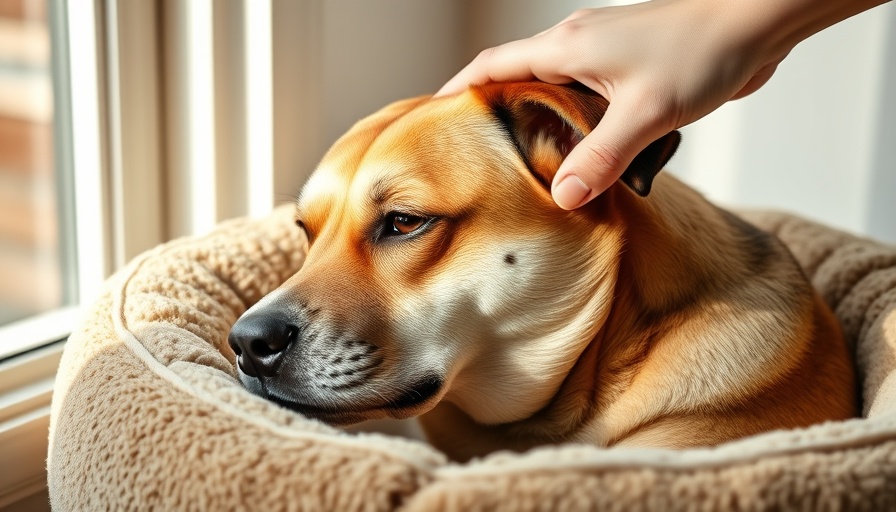
Understanding the Importance of Gut Health for Pets
As pet owners, we devote time and resources to ensure our furry friends receive the best care possible. From scheduled vaccinations to playful walks in the park, we often overlook a crucial element of their health: their gut. Just like humans, a pet's gut health plays an instrumental role in overall well-being. Surprisingly, research shows that nearly 40% of veterinary visits are related to digestive issues, highlighting the need for pet owners to pay close attention to their pet's gut health.
Signs of an Imbalanced Gut
Pets cannot speak, which makes it vital for owners to recognize the subtle signs indicating that something may be wrong. Symptoms of an unhealthy gut can manifest in various ways, including:
- Frequent digestive issues, such as bloating, gas, diarrhea, or constipation.
- Unexplained weight fluctuations or sudden changes in appetite.
- A dull coat, excessive shedding, or recurring skin issues.
- Low energy levels or noticeable changes in mood.
- Frequent infections or reduced vaccine efficacy.
These seemingly unrelated symptoms often stem from a common source: an imbalanced gut. Recognizing these signs can prompt timely interventions that support your pet's health.
Supporting Your Pet’s Gut Health with Nutrition
The good news is that fostering gut health in our pets can be as simple as adjusting their diet. A balanced diet serves as the foundation for a healthy gut. It's essential to provide pet food that is rich in proteins, fats, carbohydrates, vitamins, and minerals. Additionally, dietary fiber is crucial for aiding digestion and maintaining a balanced microbiome.
Consider adding polyphenol-rich fruits and vegetables to your pet's diet, as they promote not only gut health but also offer valuable antioxidants and have antimicrobial properties. When selecting pet food, ensure that it contains high-quality probiotics and prebiotics that nourish beneficial gut bacteria, further fostering a healthy digestive environment.
Introducing Probiotics and Prebiotics
Probiotics are beneficial bacteria that help regulate gut health. They can enhance digestion and support immunity. Easy-to-digest foods such as curd or buttermilk can be safe and effective means of introducing probiotics into your pet's diet, especially during stressful times or after antibiotic treatment.
Prebiotics, found in various fruits and vegetables, act as food for probiotics, ensuring they thrive in the gut. Incorporating foods rich in both probiotics and prebiotics offers pets the best chance at a healthy, balanced gut microbiome.
Why Local Formulations Matter
It's essential to choose pet food that is specifically formulated for your region. Indian dogs, for example, have unique needs that may not be addressed by generic global brands. Look for veterinary-backed food products manufactured within India that consider local weather conditions, dog breeds, and lifestyle. This ensures that the food meets safety and quality standards tailored to your pet's needs.
Connecting the Dots: Gut Health and Overall Wellbeing
In conclusion, advocating for your pet's gut health goes beyond mere diet adjustments. A well-functioning gut not only facilitates better digestion but also plays a crucial role in enhancing your pet's immunity, energy levels, skin health, and mood. By understanding the signs of gut imbalance and actively working toward nurturing this vital organ, you can ensure your furry companion lives a longer, healthier, and happier life. Remember, a healthy gut lays the groundwork for a healthier, happier pet!
Want to give your pet the healthiest diet possible? Explore the best pet food options, packed with the right nutrients and formulated for local conditions. Provide your pet with the gut-friendly benefits they've been waiting for!
 Add Row
Add Row  Add
Add 




 Add Row
Add Row  Add
Add 

Write A Comment